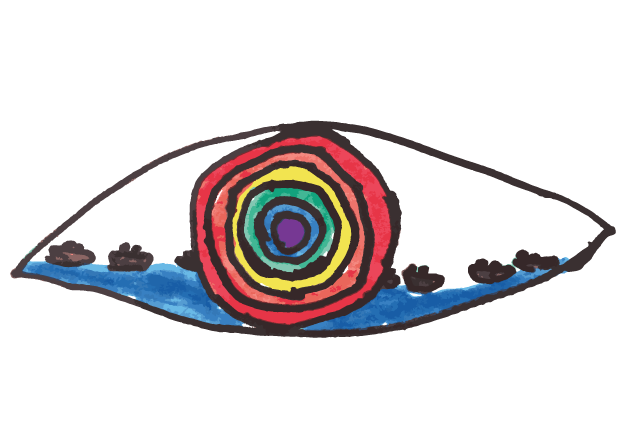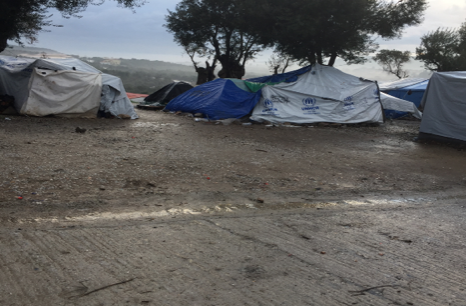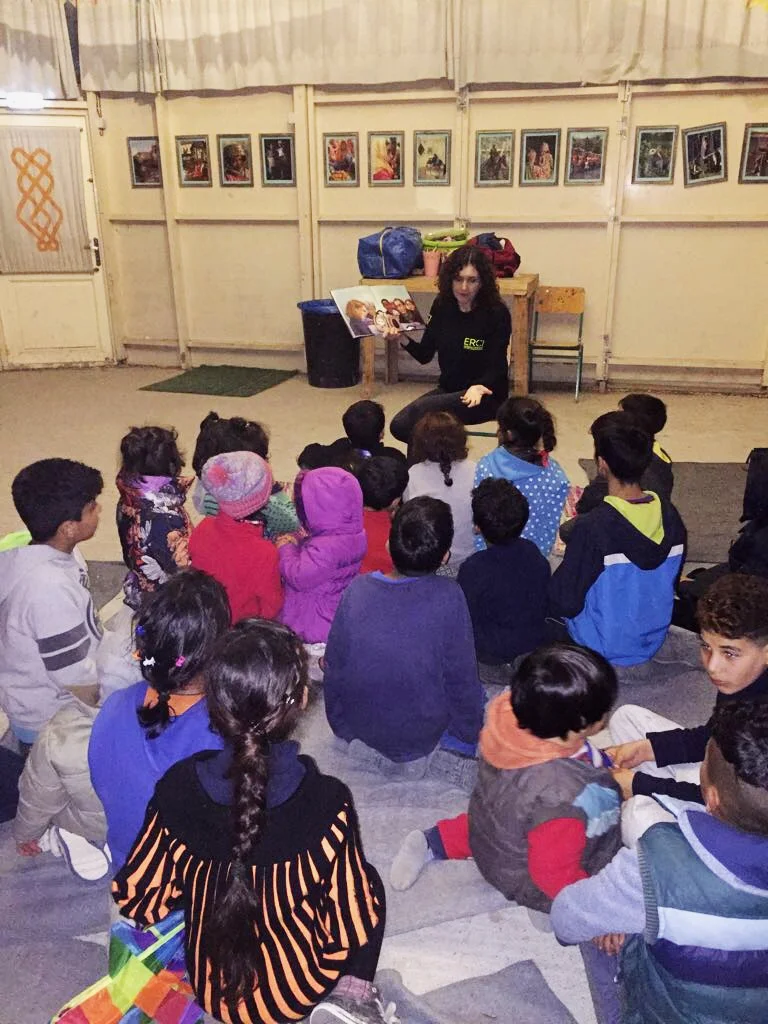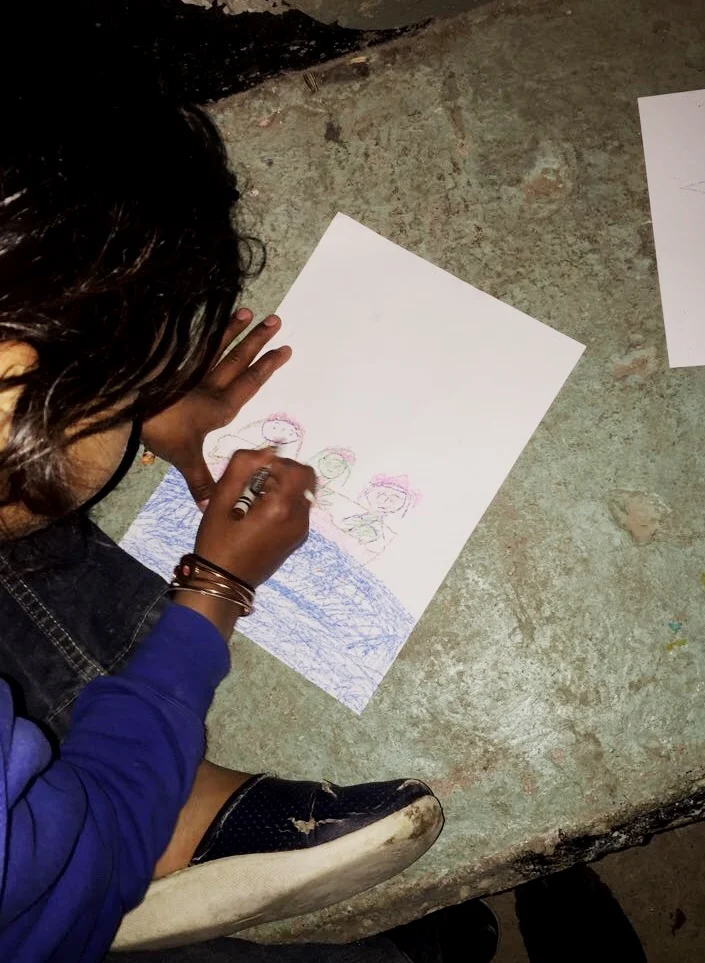Dear Supporters,
As Go Project Hope (GPH) marks its seventh-year anniversary working with refugees globally, we find ourselves grappling with the immense needs of Palestinians in Gaza and the West Bank amid the ongoing crisis. The humanitarian situation in Gaza is dire and worsening rapidly. In northern Gaza, many who have remained are facing severe shortages of essential supplies, no access to health care and are experiencing famine. Bombings are relentless, and residents are being urged to move further south with no assurance of safety. With borders closed to outside aid organizations, GPH has partnered with qualified aid workers inside Gaza to continue our mission despite the blockade.
GPH has collaborated with several organizations to provide medical supplies, food, and educational and mental health initiatives aimed at helping children and families cope with the ongoing humanitarian crisis. Here are some of the partnerships and projects GPH has undertaken to support Palestinians in Gaza and the West Bank:
• Medical Aid: GPH provided the MedGlobal medical teams with medicines, medical supplies, and disposables to support their missions in field hospitals in southern Gaza.
• Hope Kitchen: Launched in July 2024 in partnership with local chef Samah Almadhoun Hope Kitchen provided meals to 100 families living in the Um Al Fahim School, which now serves as a shelter.
• Hope Learning Center: GPH established this center to host 30 children, offering them a welcoming and safe learning environment. Our goal is to help these children develop coping skills for the trauma they face and provide them with the tools needed for healing.
Unfortunately, due to the relentless bombings in northern Gaza, our project coordinator, Leena Elmadhoun, along with our teachers and kitchen staff, had to evacuate, as did many of the residents of the Um Al Fahim shelter. We hold all those fleeing for their lives in our thoughts and prayers. GPH remains committed to resuming Hope Kitchen and the Hope Learning Center once our staff has secured a safe space to continue this work.
Our efforts in Gaza and the West Bank are far from over—they have only just begun. Thank you for being a friend of Hope. Your support and contributions help GPH fulfill its mission of aiding refugees, whether they are living in camps or awaiting resettlement, by implementing health, education, and mindfulness initiatives for children and families. We are committed to serving ALL refugees globally.
Sincerely,
Sandra Bahhur, MPH, MHSA, RN
Health Program Director
Where Are They Now?
A Go Project Hope Refugee Update for 2022
The refugee crisis is not just about numbers on paper; it’s about the horrors of war and the human stories behind the conflicts unfolding before our eyes. Many of us who work with refugee communities around the globe cannot help but note the swift coordination, care, and collaboration shown by countries in response to the Ukrainian refugee crisis. We applaud the support Ukrainian refugees have received since the start of the Russian invasion of Ukraine in February 2022. The international community’s response should serve as a template for handling all future refugee crises.
What Help Are European Countries Offering Ukrainian Refugees?
According to BBC News (July 4, 2022), “The EU has granted Ukrainians the automatic right to stay and work throughout its 27 member nations for up to three years. Refugees are housed in reception centers if they can’t stay with friends or relatives. They are given food, medical care, and information about onward travel. They are entitled to social welfare payments and access to housing, medical treatment, and schools” (BBC News, 2022).
Reflecting on the Syrian War in 2015: What Could Have Been Done Better?
Granting refugees the automatic right to stay and work in a host country for an extended period helps them feel in control of their lives again. Countless times, refugees—especially men—have expressed feeling helpless and worthless because they are unable to provide for themselves and their families while living in camps. They want to work as heads of households so they can feel whole and no longer depend on handouts from organizations to support their families.
Providing refugees with reception centers such as community halls, hotels, or other indoor facilities offers a welcoming, clean, and safe environment for those who have traveled a long, treacherous road to reach safety. Refugees living in makeshift camps often have little to no electricity, with water being scarce and sometimes contaminated. Many refugees living in tents are exposed to the elements, leaving their families feeling insecure. A lack of sanitation, bathrooms, and shower facilities, combined with heaps of lingering garbage, has compounded an already fragile health system.
Offering well-balanced, nutritious meals to refugees and avoiding long food distribution lines can prevent the feeling of food insecurity, especially among children. Reducing bureaucratic red tape and providing access to much-needed medical care for refugees is essential. Many countries do not offer healthcare access to refugees or migrants. The World Health Organization calls on all nations to implement policies that provide healthcare services to all migrants and refugees, regardless of their legal status. Refugees living in poor conditions during their journey face an increased risk of infections, so they must receive protection against illnesses, especially infectious diseases.
Refugees often suffer from post-traumatic stress disorder (PTSD) and other mental illnesses due to the violence, torture, and war they have endured, as well as the difficulties of fleeing their home country, only to face discrimination, poor health conditions, and a lack of food and support in refugee camps. Offering preventative care for many illnesses, especially after a long journey to safety, will protect both refugees and the host country’s residents.
Providing refugee children with education in a safe school environment will aid their healing process. Historically, funding for educating refugee children in camps is often the first thing organizations cut when finalizing budgets. Given that Syrian refugee children make up 50% of the refugee population, it is crucial to keep these children in a routine to help them cope with the stress and trauma of war. Education provides them with a sense of normalcy and reassures them that everything will be okay.
Providing free and sound legal advice to help asylum seekers achieve resettlement in their new country will reduce the uncertainty and tension for refugees lingering in camps without solutions. Despair among the thousands of refugees still in camps, particularly in Greece, has increased, exacerbating stress and deepening emotional wounds, creating a toxic environment. Many refugees, feeling hopeless, have taken matters into their own hands. According to our sources at the Temporary Kara Tepa Camp in Lesvos, Greece, some refugee families have left the camp to venture on their own, disconnecting from the system. These refugees face homelessness, discrimination, and the loss of the few safety nets available to them. Tragically, some have disappeared and have never been seen again.
“Opening Our Hearts and Minds” to Refugees and Migrants
This has proven difficult for many countries. Discrimination and anti-immigrant sentiments have created significant challenges for people fleeing their war-torn countries and for the organizations providing aid to them. Refugees and migrants are in the fight of their lives. Not only are they escaping from their homeland, but they are also traveling long, dangerous roads, facing risks that are unimaginable. Their hope is to find safety and resettle in a country that will welcome them with open arms, seeing them as individuals with something to contribute, not as a burden to society as they have been unfairly labeled.
The Syrian refugee crisis, especially in the wake of the Covid-19 pandemic and the start of the war in Ukraine in 2022, has faded from the media’s attention. The world seems to have forgotten about Syrian refugees and other displaced populations, leaving their stories of survival silenced, as though all is well now.
References
• BBC News. (2022, July 4). How many Ukrainian refugees are there and where have they gone? https://www.bbc.com/news/world
• UNHCR. (n.d.). Ukraine Emergency. https://www.unrefugees.org/emergencies/ukraine/
• ADL Education. (2022, May 3). Anti-Bias Education: Immigrant & Refugee Rights.
• UNHCR. (n.d.). Syria Emergency. https://www.unrefugees.org/emergencies/syria/
• Human Rights Watch. (2022). World Report 2022: Greece. https://www.hrw.org
• Buzzfeed News. (2022). A 12-Foot Puppet of a 10-Year-Old Syrian Girl Is Raising Awareness for Refugees.
• CNN. (2022). Little Amal: Why a Giant Puppet Is Walking the Streets of New York.
WHY SHOULD WE BE CONCERNED WITH THE HEALTH OF REFUGEES AND MIGRANTS?
By Sandra Bahhur, MPH, MHSA, RN
Co-founder and Health Program Director of Go Project Hope: A Health and Education Initiative
Published June 30, 2020
Because the right to health is a basic human right. The World Health Organization’s Constitution states that “everyone has the right to enjoy the highest attainable standard of physical and mental health and ratified international human rights standards and conventions exist to protect the rights of refugees and migrants including their right to health”. Providing timely access to quality health services to refugees and migrants is the best way to save lives and cut health care costs, as well as protect the health of the native citizens. Migrants and refugees are likely to be healthy, but they can be at risk of getting sick in transition or when they reach their new host country. Most of the illnesses a refugee encounters can stem from poor living conditions such as camps that provide very little shelter and sanitation. They are at risk for illness because of the change in their lifestyle due to inadequate food, lack of clean water, overcrowding and the increase in toxic stress and anxiety due to the violence and torture suffered both in their countries of origin and during their journey seeking safety.
Go Project Hope volunteers at Kitrinos health clinic in Moria Refugee Camp
Many countries do not offer access to their healthcare systems to refugees or migrants. The World Health Organization calls on all countries to implement policies that provide health care services to all migrants and refugees regardless of their legal status. Refugees living in poor conditions during their journey increase their risk of infections and disease, therefore it is necessary for them to receive protection against illness especially infectious diseases. Refugees suffer post-traumatic stress disorder and other mental illnesses as a result of violence, torture, war and fleeing their country of origin. Then, they are faced with discrimination, poor health conditions, lack of food and very little to no support system in their refugee camps.
Go Project Hope (GPH) has been working with refugees in Greece since 2016. Starting in Thessaloniki Greece, GPH collaborated with Elpida Home, a Greek non-profit organization committed to providing a humane, dignified and empowered living experience for refugees. GPH provided educational tools for teachers and students, teacher to teacher training, medication medical supplies for their health clinic and I-pads for the language lab, to help the refugees learn a new language before resettling to in their host country. As the refugee situation worsened, the Island of Lesvos became a hotspot. With the influx in of new asylum seekers and reduced numbers of refugees being resettled, GPH turned its attention to the Moria refugee camp.
Moria camp houses refugees who have fled from wars in Syria, Iraq, and Afghanistan also a small minority of refugees come from Iran, Morocco, Pakistan, Sudan, Eritrea, Democratic Republic of Congo and other countries. Once the refugees arrive in Turkey, they pay a smuggler 2,000 euros or more for a fake lifejacket and a spot on an overcrowded rubber dingy that will take them across the Aegean Sea. It is about 10 kilometers or 6 miles to Lesvos or any another Greek island like Chios, Samos or Kos. Even though it is a short distance from Turkey to the Islands, many of these refugees have drowned because they do not know how to swim, and they are navigating into unknown territory.
Moria refugee camp is located on the island of Lesvos in Greece. The camp site was an old prison that held approximately 2,000 people, now converted into one of the largest refugee camps in Europe holding approximately 20,000 refugees. Moria has little to no electricity, water is scarce, garbage is overflowing in heaps in the camp and for many refugees there is no shelter available. With the overcrowding in the camp, many have resorted to living outdoors in the elements in a make-shift extension known as the Olive Grove. They are sleeping anywhere they can find space with no tents and only a blanket or sleeping bag to protect them.
GPH has worked with Kitrinos, a UK based NGO that operates a small clinic at the entrance of the camp that provides medical care to refugees. In our missions to Moria health clinic we were able to provide nursing and ancillary clinical support, translators, health education, medication and basic medical equipment to the clinic. Over the past year, GPH has noticed the living conditions at the Moria refugee camp have deteriorated, mainly due to overcrowding and lack of hygiene which is contributing to an ongoing health crisis. On our last visit to Moria in February 2019 the same health issues, scabies and lice appeared in patients at the clinic time and time again. These health conditions stem from bad sanitation and poor living conditions in the camp. Having seen many patients with lice, scabies and deteriorating mental health within the residents, GPH created a series of 4 instructional comic books. These books were designed to teach refugee children 5 years and older about the health hazards of living in an overcrowded refugee camp, ways to prevent, detect and treat these conditions. Each Camp Care Comic book comes with a utility kit which contains the essentials to carry out the instructional lesson. It is not feasible to ask someone to wash his hands with soap and water when there are no resources to do so. The four main topics covered in the comic books are: Handwashing, lice and scabies prevention along with mindful initiatives to relieve stress and anxiety a child may have from the stresses of fleeing their home and living in a crowded refugee camp. The Camp Care Comics can be distributed to newly admitted refugee families as a prevention measure and to the children currently living in refugee camps in an informal educational classroom setting. The comic book can also be used as a patient education tool in a small clinic setting. The booklets are being translated in Arabic, French Farci, Pashtu, and Spanish but can be easily translated in other languages depending on the population.
As we live through the COVID-19 day by day, with social distancing and quarantine as a way of slowing down the virus; let us not forget the poor and displaced no matter where they live. Amid the global pandemic, Zaher Sahloul, president and co-founder of the humanitarian charity MedGlobal, urged authorities not to forget the most vulnerable people. He said, “While the global health community and countries are busy with curbing the spread of the covid-19, let us not forget the refugees and the displaced. It is our humanitarian duty, and it is also the right thing to do to prevent catastrophic morbidity and mortality in a population that is unable to deal with the pandemic effectively.” Go Project Hope continues to develop and implement health education and mindful initiatives that serve children and families during the pandemic. We are working with the medical team at Moria to understand the needs of the camp during this difficult time. A donation to GPH will allow us to provide refugee families with the basic items needed to give them a chance to defend themselves from illnesses.
Refugee tents in the olive grove
GPH bringing medical supplies to Moria refugee camp
Our Work
Project Hope a Health and Education Initiative (Go Project Hope) would like to extend our sincerest gratitude to all our supporters that believed in us our first year. Because of your support and loyalty, Go Project Hope provided health, education, living improvement and mindful initiatives that served children and families whose lives were greatly affected by conflict and war.
In our first year (2017), we provided early learning tools to help the younger children of Elpida Refugee Camp in Thessaloniki, Greece start or continue their education while awaiting resettlement. With your generous contributions, Go Project Hope provided books, and teaching materials for the early learning center helping children progress in their education during this tough time in their young lives. Tablets were provided to create a language lab, where languages like German and English classes were offered to the residence of Elpida.
In July 2017 and February 2018 two teams were deployed to Lesvos Greece to volunteer at the Moria refugee camp medical clinic and the children’s learning center at Kara Tepe. Go Project Hope provided several mindful initiatives to institute in the camps and help encourage calm and relaxation to the children. In July 2017 Go Project Hope created a yoga summer program and teacher training workshop to educate volunteers and students in mindful relaxation techniques in the hopes of relieving toxic stress and anxiety. We introduced our new puppets “Amo Abu Rami” the wise old villager, “Filfil” the dragon and “Kunkush” the cat. Using puppetry and storytelling we provided a creative platform encouraging children to dream learn, and explore.
In February 2018, your donations provided a six month supply of laundry detergent to the residents of Moria camp. Funding the Wash Program, as simple as it seems, is essential because with fresh, clean laundered clothes, refugees regain a sense of dignity, self-esteem, health and well-being.
Our medical volunteers and translators worked alongside nurses, doctors and many organizers from around the globe to provide healthcare at the camp clinic in Moria. Go Project Hope has provided the Moria camp clinic with much needed medication, oxygen tanks, walkie talkies, electronic thermometers a clinic printer and much more.
Thanks to your loyalty and generosity, Project Hope a Health and Education Initiative had a successful first year in 2017. Our sites are set on 2018 working with you, our loyal partner to bring hope to the many refugees around the globe.
Sincerely,
Sandra Bahhur
Cofounder and Health Program Director
Rita Lahoud
Cofounder and Education Program Director







